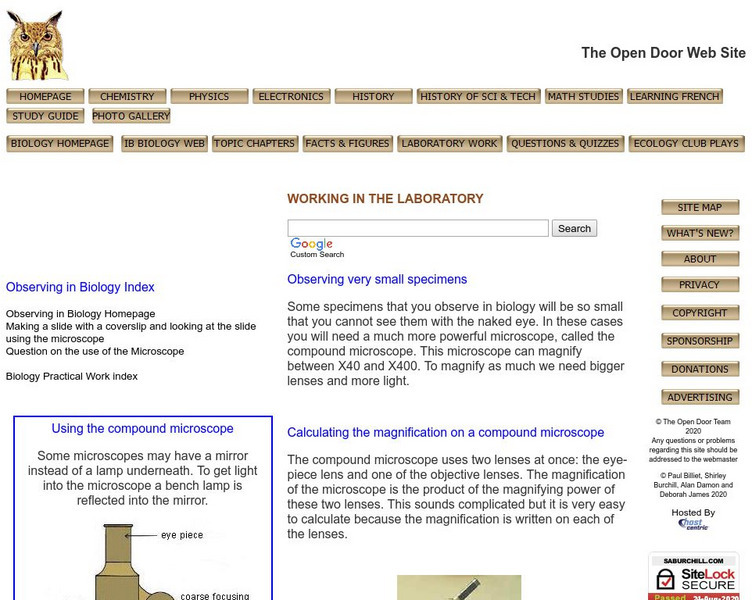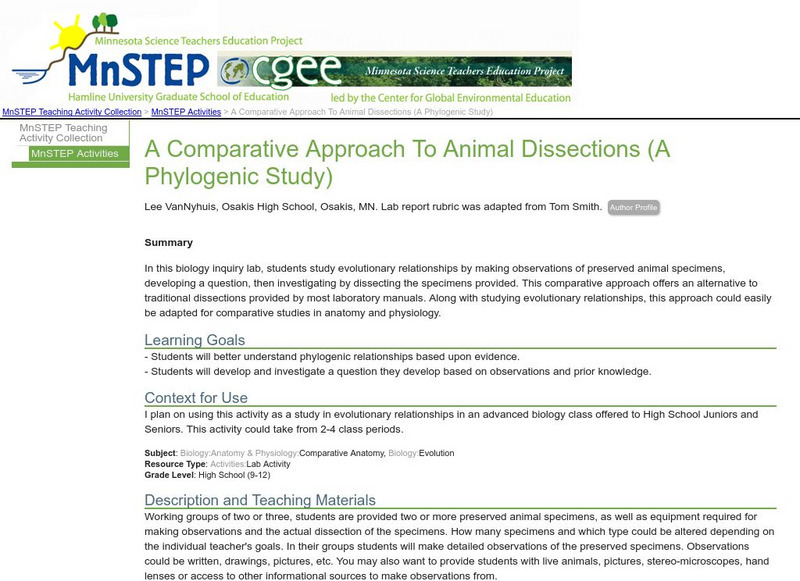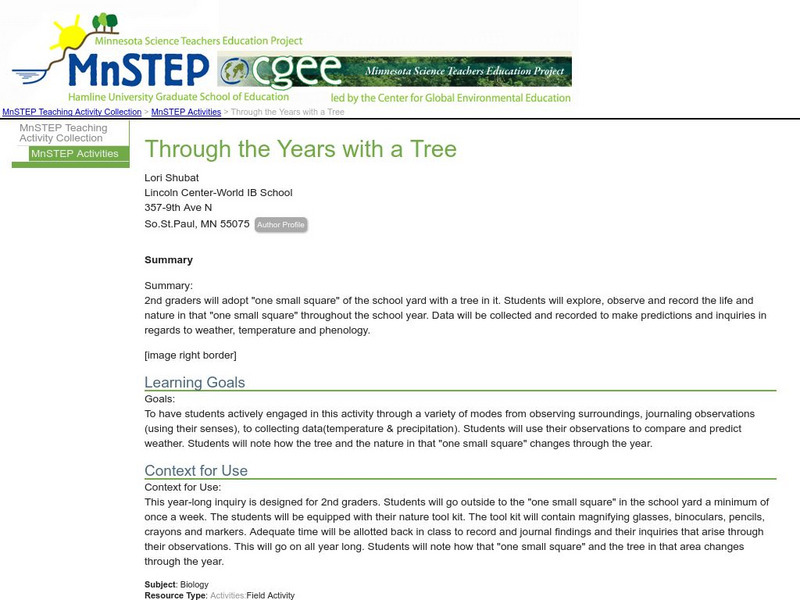Hi, what do you want to do?
Other
The Evidence for Evolution: Biogeography
These pages are part of a site called "Evolution," that accompanies a textbook by the same name. Mark Ridley is the author. These pages are about the house sparrow and the differences that can be observed in it in different geographical...
TED Talks
Ted: Ted Ed: Why Is Yawning Contagious?
*Yaaawwwwwn* Did just reading the word make you feel like yawning yourself? Known as contagious yawning, the reasons behind this phenomenon have been attributed to both the physiological and psychological. It's been observed in children...
Science Education Resource Center at Carleton College
Serc: Investigating Oranges How Many Sections Are Inside?
In this biology investigation young scholars will be asked to attempt to determine how many sections exist in an orange without having peeled it. Students will work in small cooperative groups. Each group will be able to use a small...
Open Door Team
Open Door Web Site: Biology: Calculating Magnification on a Compound Microscope
Learn how to calculate the total magnification of a microscope on this concise site. Links to making a slide, questions on the use of the microscope, and other related microscope topics are included on this site.
Science Education Resource Center at Carleton College
Serc: A Comparative Approach to Animal Dissections (A Phylogenic Study)
In this biology inquiry lab, students study evolutionary relationships by making observations of preserved animal specimens, developing a question, then investigating by dissecting the specimens provided. This comparative approach offers...
Science Education Resource Center at Carleton College
Serc: Through the Years With a Tree
Students explore, observe, and record the life and nature in their adopted "one small square" throughout the school year. As they collect data, they make predictions and inquiries in regards to weather, temperature, and phenology.
Other
Fagler College/nas 111/scientific Methodology
Power Point presentation on scientific method for NAS 102 Human and Environmental Biology II.
TeachEngineering
Teach Engineering: Corn for Fuel?!
In this activity, students examine how to grow plants the most efficiently. They imagine that they are designing a biofuels production facility and need to know how to efficiently grow plants to use in this facility. As a means of...
TeachEngineering
Teach Engineering: Creepy Silly Putty
Students learn about viscoelastic material behavior, such as strain rate dependence and creep, by using silly putty, an easy-to-make polymer material. They learn how to make silly putty, observe its behavior with different strain rates,...













